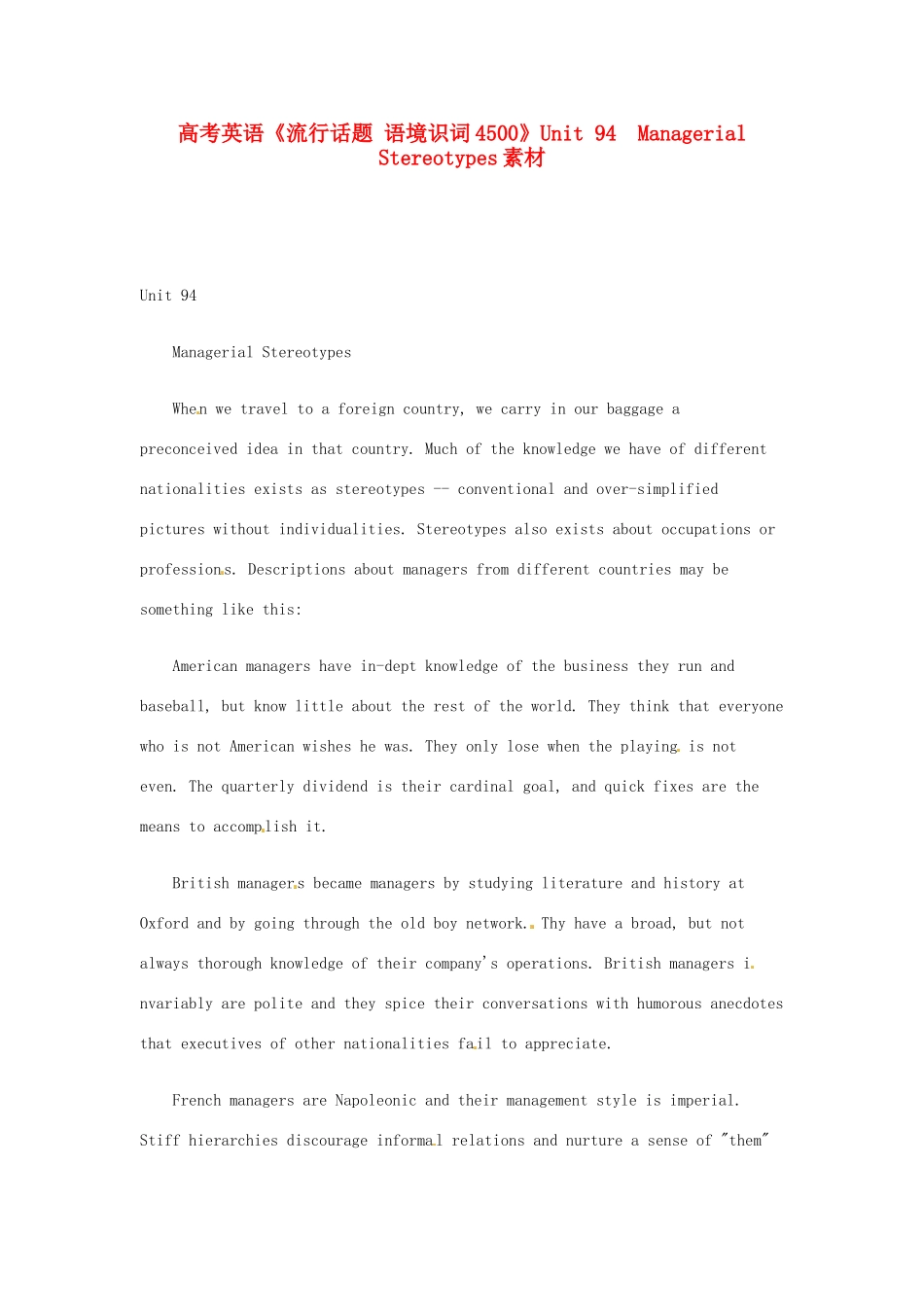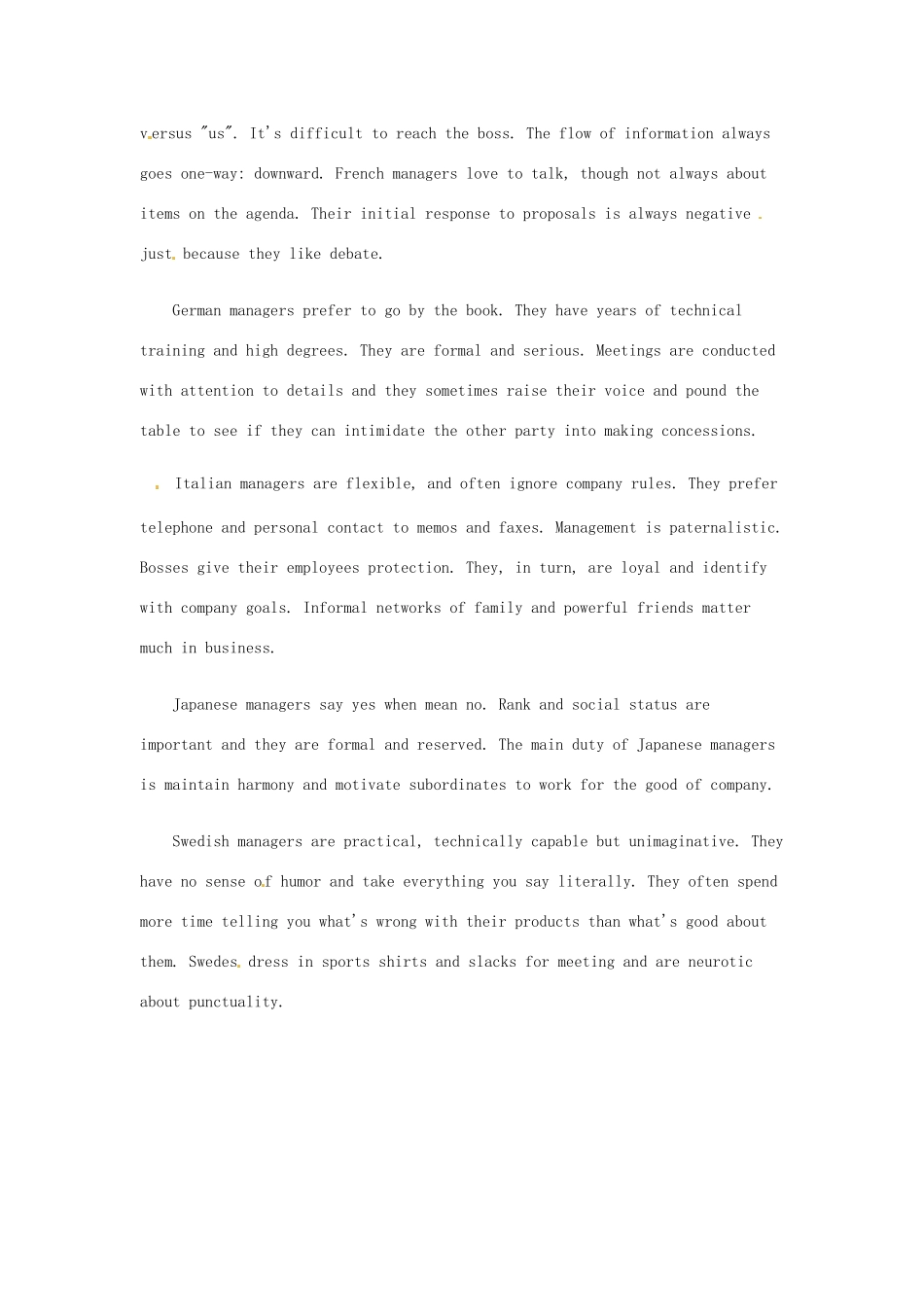高考英语《流行话题 语境识词 4500》Unit 94 Managerial Stereotypes 素材Unit 94 Managerial Stereotypes When we travel to a foreign country, we carry in our baggage a preconceived idea in that country. Much of the knowledge we have of different nationalities exists as stereotypes -- conventional and over-simplified pictures without individualities. Stereotypes also exists about occupations or professions. Descriptions about managers from different countries may be something like this: American managers have in-dept knowledge of the business they run and baseball, but know little about the rest of the world. They think that everyone who is not American wishes he was. They only lose when the playing is not even. The quarterly dividend is their cardinal goal, and quick fixes are the means to accomplish it. British managers became managers by studying literature and history at Oxford and by going through the old boy network. Thy have a broad, but not always thorough knowledge of their company's operations. British managers invariably are polite and they spice their conversations with humorous anecdotes that executives of other nationalities fail to appreciate. French managers are Napoleonic and their management style is imperial. Stiff hierarchies discourage informal relations and nurture a sense of "them" v ersus "us". It's difficult to reach the boss. The flow of information always goes one-way: downward. French managers love to talk, though not always about items on the agenda. Their initial response to proposals is always negative just because they like debate. German managers prefer to go by the book. They have years of technical training and high degrees. They are formal and serious. Meetings are conducted with attention to details and they sometimes raise their voice and pound the table to see if they can intimidate the other party into making concessions. Italian managers are flexible, and often ignore company rules. They prefer telephone and personal contact to memos and faxes. Management is paternalistic. Bosses give their employees protection. They, in turn, are loyal and identify with company goals. Informal networks of family and powerful friends matter much in business. Japanese managers say yes when mean no. Rank and social status are important and they are formal and reserved. The main duty of Japanese managers is maintain harmony and motivate subordinates to work for the good of company. Swedish managers are practical, technically capable but unimaginative. They have no sense of humor and take everything you say literally. They often spend more time telling you what's wrong with their products than what's good about them. Swedes dress in sports shirts and slacks for meeting and are neurotic about punctuality.

